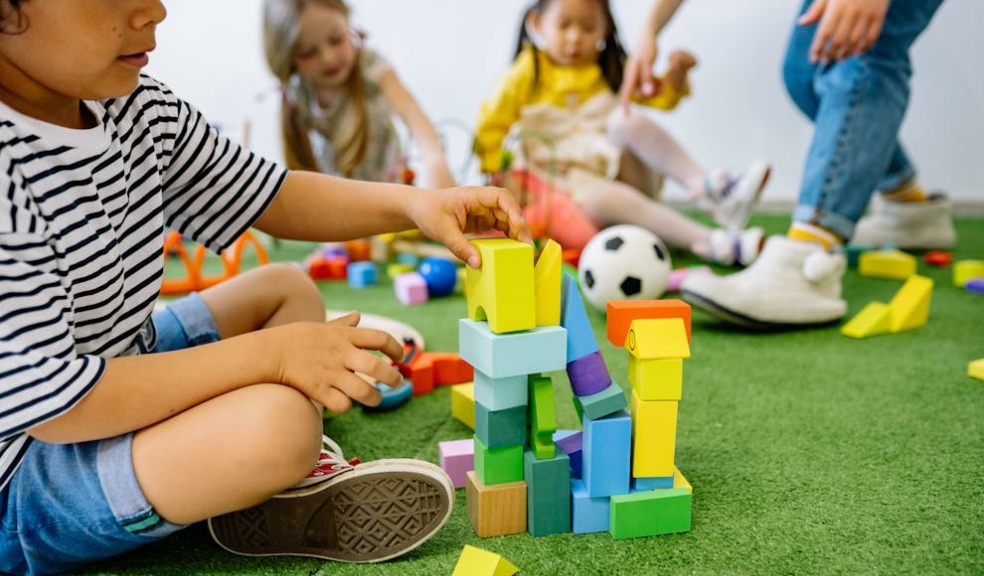
The Building Blocks of Success: Why is Early Education Important?
It's a vibrant morning at the early education centre. Building blocks clatter cheerfully as tiny architects create their masterpieces. Giggles erupt from a circle where children sing about the alphabet, their voices a chorus of pure joy. In another corner, budding Picassos explore colours with paint-splattered fingers, their faces beaming with pride.
But this isn't just playtime. These seemingly simple activities lay the foundation for a bright future. Have you ever stopped to consider just how crucial early education is in shaping successful individuals?
This article dives deep into the importance of early education, exploring the remarkable ways it equips children with the tools they need to thrive throughout their lives.
A Modern Perspective on Early Education
Education in the early years has really evolved beyond simple rote memorisation and the old 'one-size-fits-all' method. Today's classrooms are a vibrant blend of play-based learning, social development activities, and exploration—all designed to spark a child's natural curiosity and love of learning. It's all about lighting up a child's innate curiosity and fostering a genuine love for learning.
The importance of early education cannot be overstated, with many centres across the globe demonstrating significant success in nurturing young minds. Among these, Little Learners Academy Thirlmere stands alongside numerous others in providing a foundation for lifelong learning and development.
Technology in the Classroom
Gone are the days of bulky computers and outdated software. Now, classrooms buzz with the sounds of interactive whiteboards and tablets, and educational apps have become the norm. Kids these days get to interact with information in ways that are both fun and engaging.
Picture a child exploring the solar system through virtual reality or learning their numbers with a math game that actually talks back to them. It’s just amazing how technology is opening up new worlds in early education.
Modern Teaching Methodologies
Modern teachers understand the importance of fostering a love of learning, not just teaching to a test. Play-based learning is a cornerstone of this approach, allowing children to explore concepts through hands-on activities, collaborative play, and open-ended projects. This fosters critical thinking skills, problem-solving abilities, and a sense of creativity, all crucial for future success.
The focus has also shifted towards social-emotional learning, helping children develop important skills like empathy, communication, and self-regulation. These skills are essential for navigating social situations, building healthy relationships, and thriving in school and beyond.
Integrating Emotional Intelligence in Early Curricula
In today's world, academic skills are just one piece of the puzzle. Success also hinges on a child's ability to understand and manage their emotions, empathise with others, and bounce back from challenges. This is where emotional intelligence (EQ) comes in, and the good news is, early education can significantly shape these crucial skills.
Why is EQ Important?
Imagine a child who excels in math but struggles to cope with frustration when faced with a difficult problem. Or another who has trouble understanding a classmate's sadness. These are situations where strong emotional intelligence can make a big difference.
EQ equips children with the tools to:
- Recognise and understand their own emotions: This is the foundation for self-regulation, allowing children to manage their feelings in a healthy way.
- Develop empathy: By understanding the emotions of others, children build stronger relationships and navigate social situations more effectively.
- Build resilience: EQ helps children cope with setbacks and challenges, fostering a growth mindset and perseverance.
Nurturing Young Hearts and Minds
Many early education programs now incorporate activities specifically designed to develop emotional intelligence. Here are some examples:
- Social-emotional learning (SEL) programs: These structured programs use age-appropriate activities, stories, and discussions to teach children about emotions, communication, and problem-solving.
- Circle time: This daily routine allows children to share their feelings, listen to their peers, and practice empathy.
- Role-playing activities: By acting out different scenarios, children can explore various emotions and practice healthy ways to express them.
Environmental Awareness from the Start
The concept of 'going green' isn't just for adults anymore. Many early education programs are recognising the importance of fostering environmental awareness in young children. By helping kids fall in love with nature and learn about their role in protecting the environment, teachers are helping to shape a future filled with people who really care about the Earth.
Planting the Seeds of Sustainability
Here are some ways early learning integrates environmental education:
- Nature exploration: Playing outside isn't just a blast—it's also a great way for kids to get closer to nature. Try to carve out some regular time for them to roam around gardens, wander through parks, or even just poke around the schoolyard. Let children observe plants and animals, collect interesting rocks, or simply soak up the fresh air.
- Hands-on activities: Learning by doing is key for young minds. Start a compost bin and let children witness food scraps transform into nutrient-rich soil. Plant a vegetable garden and allow them to experience the joy of growing their own food.
- Recycling and conservation practices: Make eco-friendly habits a part of the daily routine. Why not start by setting up special bins for recycling things like paper and plastic? Teach children to turn off lights and electronics when not in use, and discuss the importance of conserving water.
Imagine a classroom where children take pride in reducing waste, or a playground where they become mini eco-warriors, planting trees and cleaning up litter. This is the future we're building, one tiny seed of knowledge at a time.
The Lasting Impact of Early Education
The investment in early education goes far beyond the classroom walls. Strong partnerships between educators, families, and the community create a powerful support system that nurtures a child's development on all levels. When families are actively involved, children feel empowered and excited to learn.
The future belongs to those who can think critically, solve problems creatively, and navigate an ever-changing world. Let's continue to champion high-quality early education programs, because when we invest in our children's potential, we invest in a brighter future for all.













